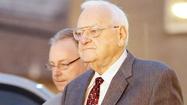In November 2012, BP agreed to pay $ 4.5 billion in fines and plead guilty to criminal charges related to the Deepwater Horizon drilling disaster. As part of their plea agreement, company executives admitted they had misled Congress and the American public by providing false information about the extent of the oil spill.
BP fudged the numbers in a big way, which left some researchers wondering how accurately “minor” oil spills in the Gulf of Mexico were being reported by the dozens of other companies with leases to drill.
Oceanographers at Florida State University (FSU) teamed up with SkyTruth, a West Virginia nonprofit that uses satellite images to track environmental pollution, to assess whether “minor” oil spills were being minimized in official documentation.
FSU graduate student Samira Daneshgar Asl analyzed 67 satellite images and found that manmade slicks were as much as 13 times larger than the estimates reported by oil companies to the National Response Center, the branch of the U.S. Coast Guard that collects information on oil and chemical spills in U.S. waters.
The results were presented last week at the Gulf of Mexico Oil Spill and Ecosystem Science Conference in New Orleans, at a presentation originally reported on by Nature.
“There were one or two cases where we saw less oil than what was reported. But in most other cases, we saw longer slicks, larger areas, and greater volumes than what was reported, usually by a factor of 10 or more,” Ian MacDonald, an oceanographer at Florida State University, told TakePart.
MacDonald and his collaborator John Amos, president of SkyTruth, have a background in using satellite images to detect small oil slicks caused by natural seeps in the ocean floor. They soon realized that you could use the same technology to detect human-caused oil spills. “Satellite imagery became a critically important tool to determine that the oil spill was 20 to 25 times larger than BP was saying it was in the first week of the spill,” Amos said in an interview with TakePart.
Until the BP oil disaster, reports by the federal government showed that there were more natural seeps in the Gulf of Mexico than there were manmade spills. “Pro-drilling politicians and oil industry spokespeople could say, ‘nature pollutes the Gulf more than we do,’ ” Amos told TakePart. “But the main source of information available were pollution reports submitted by the polluters themselves.”
Following the BP oil disaster, Amos and MacDonald turned their attention to the dozens of other companies operating in the Gulf of Mexico. The discrepancies were significant.
The next step, Ian MacDonald told TakePart, is to publish the data in a peer-reviewed journal so that it can be established as part of the scientific record. MacDonald and his team plan to use the published study to advocate for the expanded use of satellite surveillance of the Gulf of Mexico. “It demonstrates that [satellite images] can be used as a component of coastal monitoring and in some ways it’s more accurate and sensitive than relying on user observations,” he said.
The researchers believe that independent monitoring is an essential component of increasing transparency and accountability in the management of our nation’s natural resources.
“It may not be so easy to dismiss the cumulative environmental impact of offshore oil and gas development when we’ve demonstrated that we don’t really accurately know how much pollution goes along with that development,” Amos said. “Right now the public is totally in the dark, relying on the polluters themselves. That is totally unacceptable.”
Related Stories on TakePart:
• Are We Prepared to Accept the Risks of a Four-Degree Warming?
• Starvation Diet: Climate Change Takes Bite Out of the Giant Pandas’ Food Supply
• Op-Ed: Expanding on the Moral Logic of Climate Communication
Alison Fairbrother is the director of the nonpartisan Public Trust Project, which investigates and reports on misrepresentations of science by corporations and government. She has written for the Washington Monthly, the Washington Spectator, Grist, and Politics Daily, among others. Alison is based in Washington DC. @adfairbrother | TakePart.com
Energy News Headlines – Yahoo! News
Title Post: Surprise! Oil Companies Vastly Underreport Size of Oil Spills
Url Post: http://www.news.fluser.com/surprise-oil-companies-vastly-underreport-size-of-oil-spills/
Link To Post : Surprise! Oil Companies Vastly Underreport Size of Oil Spills
Rating:
100%
based on 99998 ratings.
5 user reviews.
Author:
Thanks for visiting the blog, If any criticism and suggestions please leave a comment


